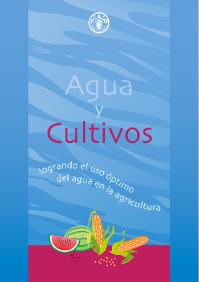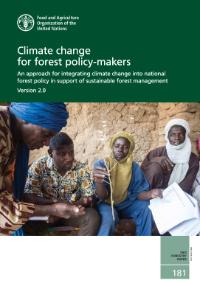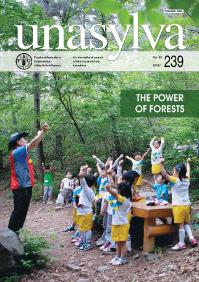Focal point
Location
The Food and Agriculture Organization of the United Nations leads international efforts to defeat hunger. Serving both developed and developing countries, FAO acts as a neutral forum where all nations meet as equals to negotiate agreements and debate policy. FAO is also a source of knowledge and information. We help developing countries and countries in transition modernize and improve agriculture, forestry and fisheries practices and ensure good nutrition for all. Since our founding in 1945, we have focused special attention on developing rural areas, home to 70 percent of the world's poor and hungry people.
Members:
Resources
Displaying 136 - 140 of 5073Agua y Cultivos
El agua - fuente de seguridad alimentaria/Día mundial de la alimentación: 16 Octubre 2002
Irrigation in the Countries of the Former Soviet Union in figures
FAO's AQUASTAT programme, initiated in 1993, aims to meet the demand for information on water resources and use at regional level, with particular emphasis on irrigation and drainage. The objectives of the programme are to collect and present, in a systematic way, data on rural water use at country level.
With an area of more than 22 million km², the former Soviet Union (FSU) covers about 17% of the world and presents a wide range of climatic and physiographic situations, from the arctic zones of Siberia to the arid deserts of Central Asia.Valoración de los derechos de tenencia de la tierra
El Estado y el sector privado requieren la valoración de los derechos de tenencia por una amplia gama de motivos, a menudo fundamentando y sentando las bases de las transacciones, la tributación, la compensación y la contabilidad. Si bien el valor y el proceso de valoración tienen repercusiones jurídicas y económicas directas en nuestra vida cotidiana, suelen estar envueltos en misterio y no se los comprende con claridad.
Climate change for forest policy-makers
The critical role of forests in climate change mitigation and adaptation is now widely recognized. Forests contribute significantly to climate change mitigation through their carbon sink and carbon storage functions. They play an essential role in reducing vulnerabilities and enhancing adaptation of people and ecosystems to climate change and climate variability, the negative impacts of which are becoming increasingly evident in many parts of the world.
The power of forests
This edition of Unasylva comes in the wake of the United Nations Conference on Sustainable Development, Rio+20,which, among other things, produced a document called The Future We Want. In it, world leaders renewed their commitment to sustainable development and stated that “the wide range of products and services that forests provide creates opportunities to address many of the most pressing sustainable development challenges”. Foresters should be pleased with these words because they indica te that forests are starting to get the recognition they deserve.











